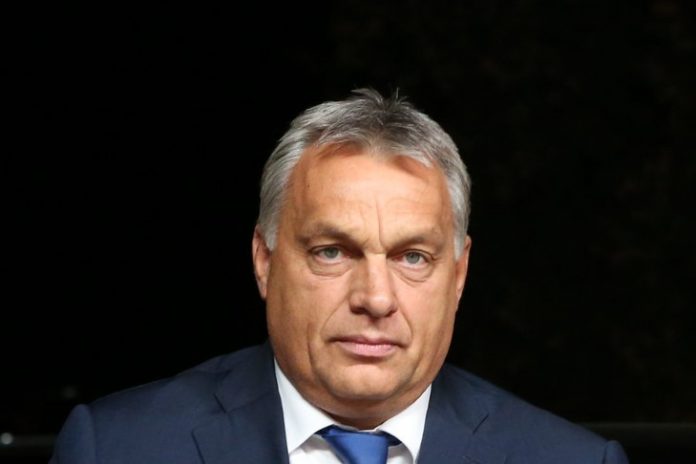Hungary’s Prime Minister Viktor Orbán will address the European Parliament on September 11 to debate the rule of law in his country. The MEPs plan to ask him questions before deciding on September 12 whether Brussels should act.
This could be the first time the European Parliament takes the initiative of recommending that Article 7 be activated and ultimately strip Hungary of its EU voting rights.
In a statement, the Progressive Alliance of Socialists and Democrats (S&Ds) group in the European Parliament noted that there has been a “consistent and sustained attack on basic principles of liberal democracy in Hungary.”
“There are serious concerns in many fields: the functioning of the constitutional and electoral system, the independence of the judiciary and of other institutions, the rights of judges, corruption and conflicts of interest, freedom of expression, academic freedom, the fundamental rights of migrants and economic and social rights. Consequently, the situation in Hungary indeed warrants the launch of the Article 7(1) TEU procedure. The vote on Wednesday is the chance to show that we as Parliamentarians are on the side of democracy, rule of law and the Hungarian people.”
Meanwhile, Euronews online interviewed Tibor Szanyi, head of the EP-delegation of the Hungarian Socialist Party (MSZP) and vice-president of the Hungarian Socialist Party. He said: “I can only hope that finally the EPP [European People’s Party] leaders will prove to have sufficient political will, and leverage on Orbán to respect European values, and to start restoring democratic governance, the rule of law, and social justice in my country.”
Casba Molnár, a member of Demokratikus Koalíció / Group of the Progressive Alliance of Socialists and Democrats in the European Parliament, told Euronews that the EPP should have “launched the exclusion of Fidesz from its community a long time ago”.
Another Hungarian MEP Péter Niedermüller, member of the European Parliament’s Socialists & Democrats (S&D) group, noted that the policies of Fidesz are highly contrary to what can be called European Christian democracy.
“Since 2010, Orbán and his party have systematically breached the rule of law both at the national and international level,” said Niedermüller. “He continuously goes against core European values, such as freedom and openness. Hence, even moderate members of the EPP are said to be having enough of his destructive politics and are willing to vote in favour of triggering Article 7.”
In a separate report, Deutsche Welle (DW), Germany’s international broadcaster, interviewed Marta Pardavi, whose organisation represents and defends asylum seekers in Hungary. She described to DW what happened after a recent appearance before the civil liberties committee in the European Parliament. “My name and my picture and those of my colleagues who come to Brussels to talk about the rule-of-law problems in Hungary are always targeted after these events. It’s not only a fear but based on evidence that I know that this will be happening.”
MEP Judith Sargentini (Group of the Greens/European Free Alliance) says this kind of behaviour has no place in the EU. As the legislature’s rapporteur on Hungary, the Dutch lawmaker is urging her counterparts to support her recommendations to launch Article 7.
Sargentini’s report says Orban’s attacks on the press, the judiciary, migrants and refugees, rights of minorities are a “systemic threat” to the EU’s fundamental principles.
“We lose legitimacy in our human rights stance and our values of democracy outside of the union if we let this happen inside,” she told DW. “But the main issue is that Hungarian citizens are losing out on an inclusive democracy.”
Hungarian government spokesman Zoltan Kovacs told reporters, however, that Sargentini’s report is a “pack of lies”.
“The real motive behind it is our stance on illegal migration,” Kovacs said. “This is a desperate attempt on behalf of pro-migrant, pro-migration political groups to put Hungary on trial.”

